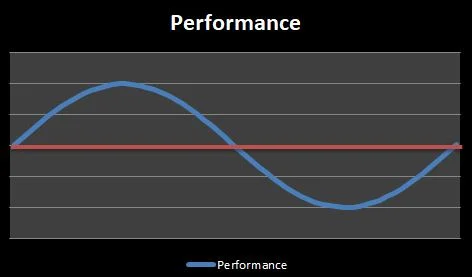Coffee Thoughts
Find a way to make a new employee stand out.
Quick Wins
When you hire a new person, set them up for success. Obvious, right? To some, this means, Have a laptop, phone, email, accounts, etc, prepared for them when they arrive—but that is basic stuff. If you can’t get that done, and done correctly, then have a sit down with your HR and IT groups and get this figured out. It’s a terrible first impression.
By, Quick Wins, I mean, show the rest of the team why you hired this person by giving them something at which they can publicly excel. This is doubly true if you had other internal candidates who did not get the position — to borrow a phrase from writing, show don’t tell why you hired this person and didn’t promote them.Quick wins can be anything from a one week project that highlights a needed technical skill, having them tackle a long standing, low hanging fruit issue or even banging out Step 1 of 50 with larger projects that have languished. This type of activity ensure the new employee is engaged with both the work and their colleagues, that existing employees see the new employee’s contributions and that you’re getting immediate results from your new hire.
All it takes is planning.
And if you’re about to hire someone and you think about, What quick win could I get them, and you can’t come up with anything? RED FLAG
Basic EQ
Emotional Intelligence, EQ, is made out to be this complex thing full of feelings and hugs. It’s not complex and it is shockingly simple:
Have empathy for whatever someone else is going through. That’s it. Put yourself in their shoes and look around.
As the manager, sometimes that presents hard choices. Being accommodating is not the same as being walked all over and having empathy and understanding is not the same as simply saying yes to someone’s requests for a flexible schedule or reduced time. You have to balance their needs with the needs of the role, the team and the company. Accomodation is a sliding scale with both sides contributing.
Here’s what I mean:
A great employee needs to leave early on Tuesday’s to get their kid off the bus because of a childcare change? Not a problem
Same situation, but your team’s big project meeting is Tuesday afternoons, after they would leave? Can they dial in? They need to have their content and updates in and ready prior to leaving or logging off. Can they miss the first 15 minutes of the call and then join?
Work at it. Compromise and find a way. If HR is involved because it is an FMLA situation or something more serious, the level of accomodation goes up.
We’re all walking together
Coffee makes meetings better
Career Pathing
I’ll post more on this in a long form, but I find the best reviews and the best way to help someone grow and figure out a career path that fits them is to ask two basic questions:
What do you want to do more of?
What do you want to do less of?
They are straightforward and thought provoking questions that get to the heart of career pathing. What are the things you like doing and what are the things you dislike doing? I’m up front about saying, I can’t promise that you wont have to do things you don’t like doing — who loves time keeping, or submitting expense reports?? — but how do we minimize that? How do we maximize the things you want to do more of?
Related to this is being willing to tell someone that the things they want, either more or less of, are not realistic or not a good fit. You’re a manager in a professional services group and want less client interaction? Not gonna happen. Same person wants to do more IT related work? Also, unlikely in that role. That said, maybe that’s an indicator that they should be growing towards a back office IT role.
I like to ask these questions prior to the meeting—maybe a week in advance—so the person has time to think. You’ll have a better meeting and they will get more out of the conversation.
What is this?
Remote people management is harder than normal people management and there are exceedingly few good resources on the topic that don’t devolve into cheap platitudes and stupidity. Google, Remote Management, and you’ll find the same tired lists and one-paragraph think-pieces posted under multiple different sites. Some of them are good ideas. Many of them are not. A few are actively detrimental to remote work.
Good people management is transformational. It is the difference between an okay company and a great one.
My goal is to help teach others about people management—specifically, people management when one or both of the manager and direct report are remote. My goal is to offer practical advice based on my own experience and to do so in a format with some real-life examples.
Who is this for?
Managers, mainly. Learning how to manage is hard and being a bad manager is exceedingly easy.
This is also for anyone interested in becoming a manager, as well. Understand what it is you’re signing up for and make an informed decision. Unhappy, resentful managers make for unhappy, unsuccessful and resentful teams.
The good news is that people management is teachable and trainable.
The bad news is that it is a totally different job than the one you had before, so strap in.
Who am I?
I’m Nick Mirick and I’m good at managing people.
Wait wait wait— no really!
The worst managers are often the ones who believe themselves exceptional! That’s not me!
I’ve been a people manager for ten years, leading teams from five to eighty and I’ve done it all while being remote from most or all of my reports.
I’m a Millennial (proudly) and I’ve primarily managed Millennials and GenX’ers at a technology startup that grew from 200 to 2,000 employees over my tenure. I’ve managed individual contributors. I’ve managed the manager of managers.
I’ve seen some things. I’ve learned from my misteps. Mostly, I benefited by quickly understanding that people management and my pre-people management job were only tangentially related skill sets — and that if I wanted to be good at people management, I had to learn and work at it like any other skill. Also, I had a master for a mentor—and not everyone is so lucky.





















If you’re clinging to the old ways just because they’re familiar, maybe it’s time to ask yourself why. After all, we’re adults. And as Spotify so aptly points out, we deserve to be treated like it.